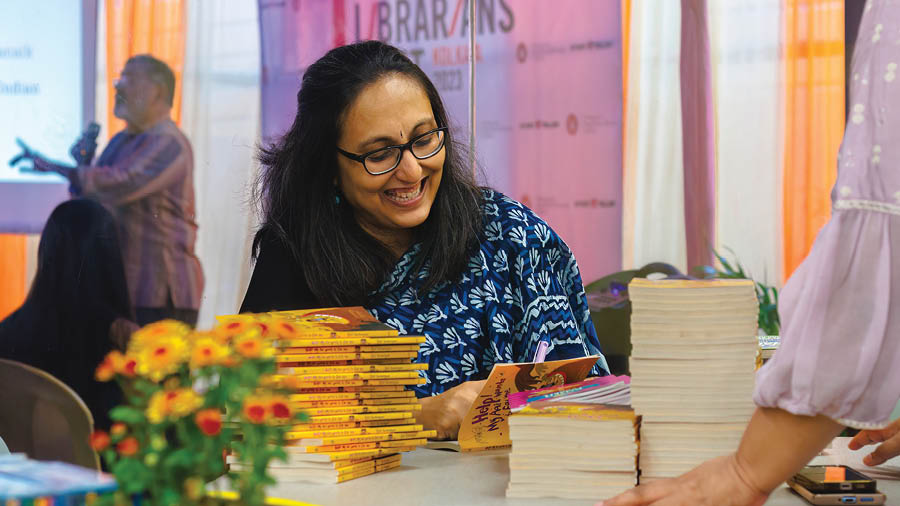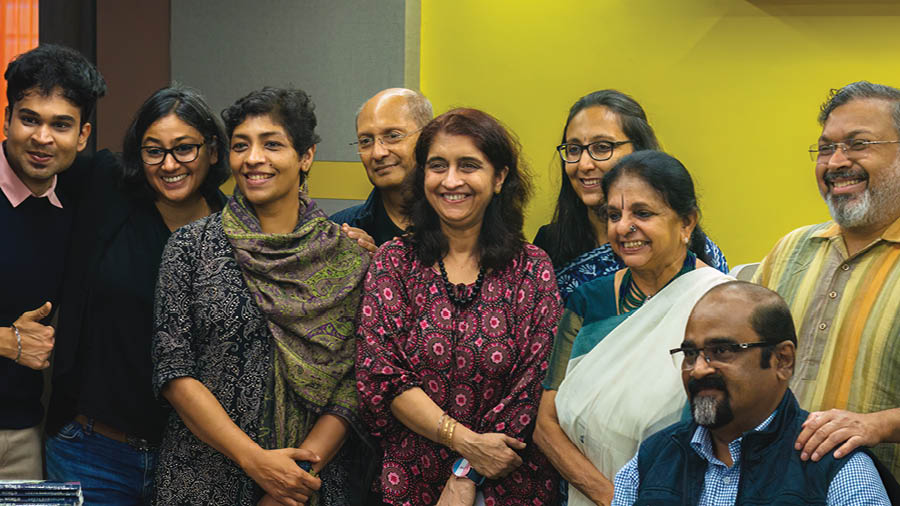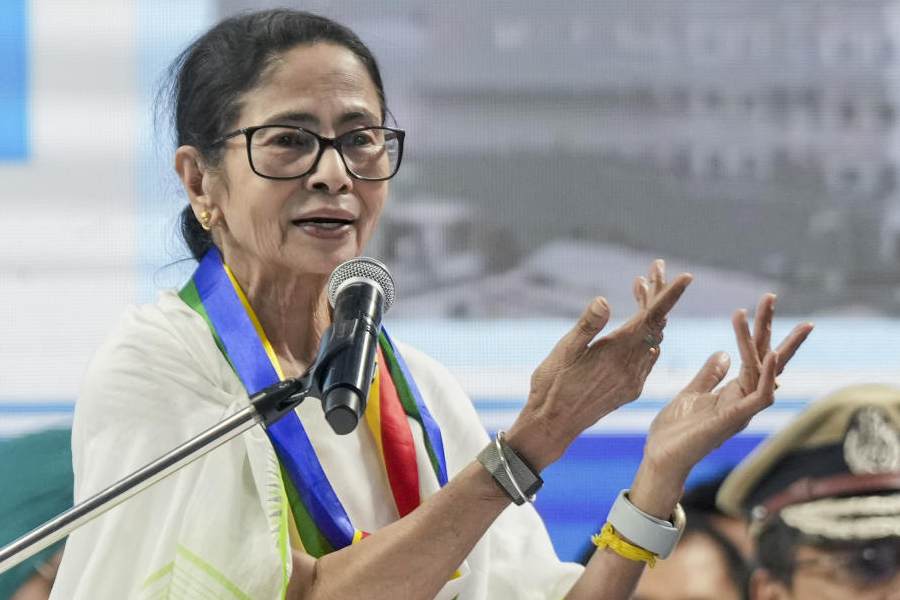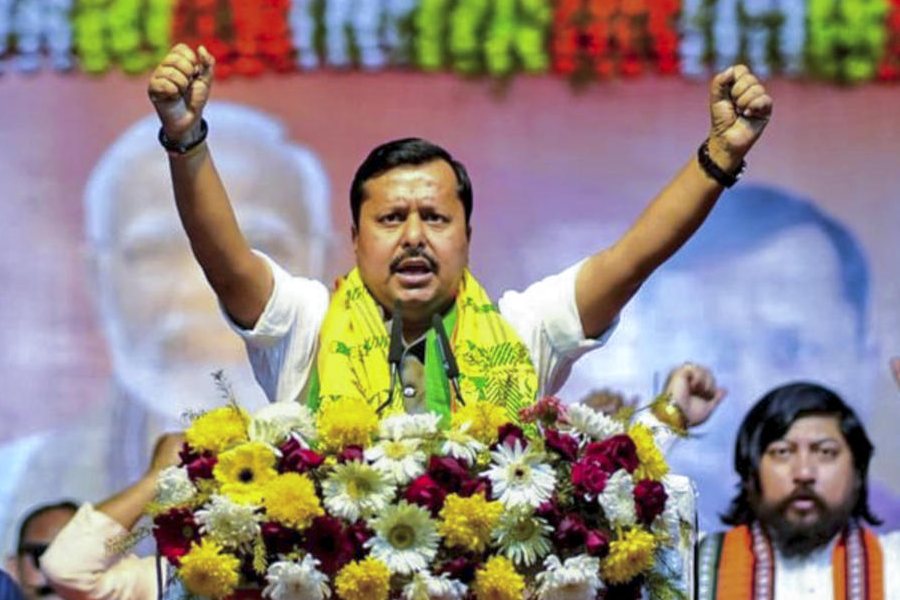Back after a hiatus of three years because of Covid-19, the third instalment of The Librarians Meet, organised by Storyteller Bookstore in collaboration with Penguin Random House India, was welcomed with open arms by librarians and authors alike. Librarians across India attended the meet alongside big names in Indian children’s literature, including Devdutt Pattanaik, Geeta Ramanujam, Lavanya Karthik, Bijal Vachharajani and Deepak Dalal, between December 6 and 8.
Days one and three saw the authors holding special sessions with students from different age groups at Mahadevi Birla World Academy and The Heritage School, while day two was mostly focused on upskilling the librarians, which was held at the Storyteller Bookstore at VIP Bazar. “It’s vital that we rekindle the reading habit in school children, especially after lockdown where they were mostly used to screen time. What better way to do so than to have a librarian’s meet to motivate and empower the librarians to take reading forward… The idea behind the meet was to introduce the wonderful world of Indian children’s literature published by Penguin Random House India to librarians,” said Mayura Misra, proprietor, Storyteller Bookstore.
‘Librarians are a crucial part of a child’s intellectual growth’
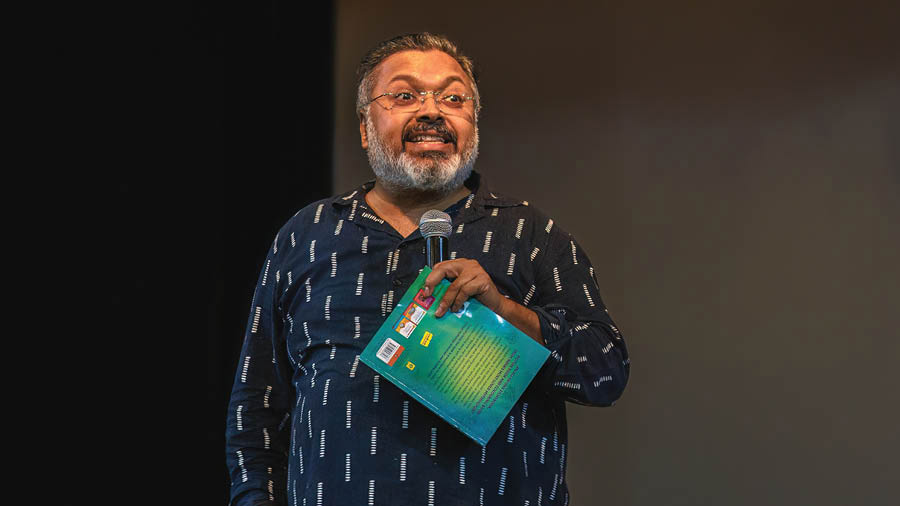
Stories are needed to understand what science cannot explain, argued Devdutt Pattanaik
Students of Mahadevi Birla World Academy were delighted to interact with some of their favourite authors on December 6 — Karthik and Vachharajani spoke with students from classes three and four, while Dalal conversed with students from classes six to eight. The sessions involved the authors talking to the students about their own writing (on a wide range of topics from climate change to India’s rich wildlife) as well as the students’ reading habits, before signing books for the young readers. On the same day, Ramanujam was at The Heritage School, presenting an interactive storytelling session with students of classes four and five.
Day two of The Librarians Meet was all about those who act as a bridge between authors and readers — the librarians. The day began with a keynote speech by Pattanaik, who encouraged librarians to not ask children to acquire knowledge as a means to achieve something else, but to acquire knowledge for the purpose of self-enrichment. Pattanaik said that librarians are “a crucial part of a child’s intellectual growth, who should guide kids toward Saraswati (meaning knowledge) without having the ulterior motive of gaining Durga (meaning power) or Lakshmi (meaning wealth)”. He also spoke about why stories matter: “Science can tell you how you were born or how you die. But it can’t tell you why you were born or what happens after you die. No science can explain this to you, which is why you need stories.”
Pattanaik’s address was followed by an interactive storytelling session by Ramanujam. She talked about the tools and tricks that the librarians can use to make storytelling sessions more interesting for kids. Instead of just reading out the stories, librarians can act out bits of stories and involve kids in the narration process to make them more engaged in storytelling, suggested Ramanujam.
‘Indian stories are a way of teaching kids more about their country beyond what’s present in textbooks’
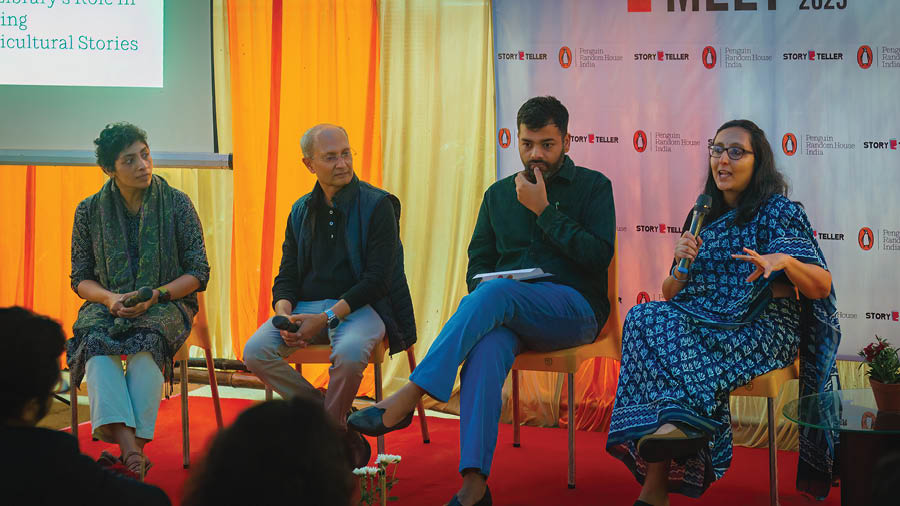
(L-R) Lavanya Karthik, Deepak Dalal, Vishes Kothari and Bijal Vachharajani
Next up was a panel discussion on a librarian’s role in offering multicultural stories to young readers, with Karthik, Vachharajani and Deepak Dalal sharing their insights in a discussion moderated by Vishes Kothari. Kothari set the context by talking about the importance of translating various books into English to provide more diversity on the bookshelf for kids. Vachharajani shared how “it’s pertinent to expose children to Indian works of literature to educate them about the diversity of the Indian landscape, including a variety of real-world topics”. Dalal added that “Indian stories are a way of teaching kids more about their country beyond what’s present in their prescribed educational textbooks”.
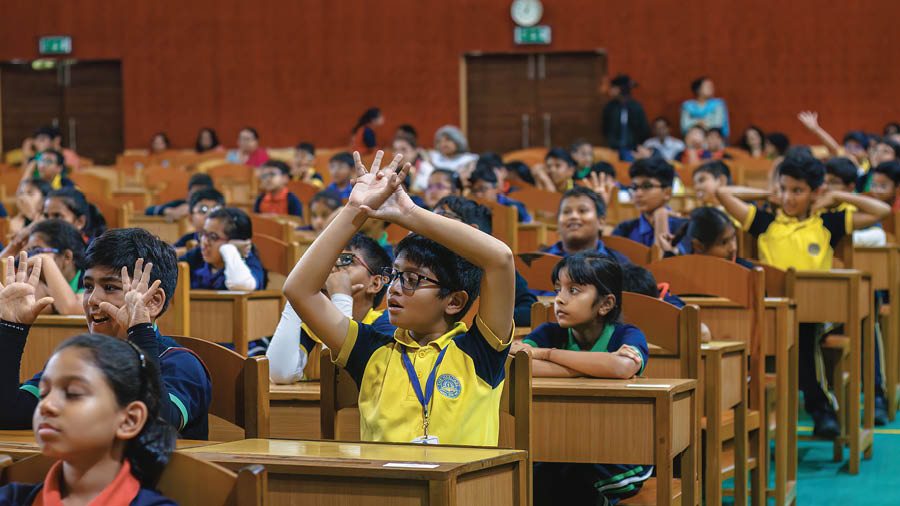
Students at The Heritage School during an interactive storytelling session on December 8
The final day of the event, on December 8, witnessed Pattanaik, Karthik, Vachharajani and Dalal speaking to students at The Heritage School from classes three to nine about their respective books and the different stories they have worked on, ranging from mythology to climate change to the flora and fauna of India.
Guests speak
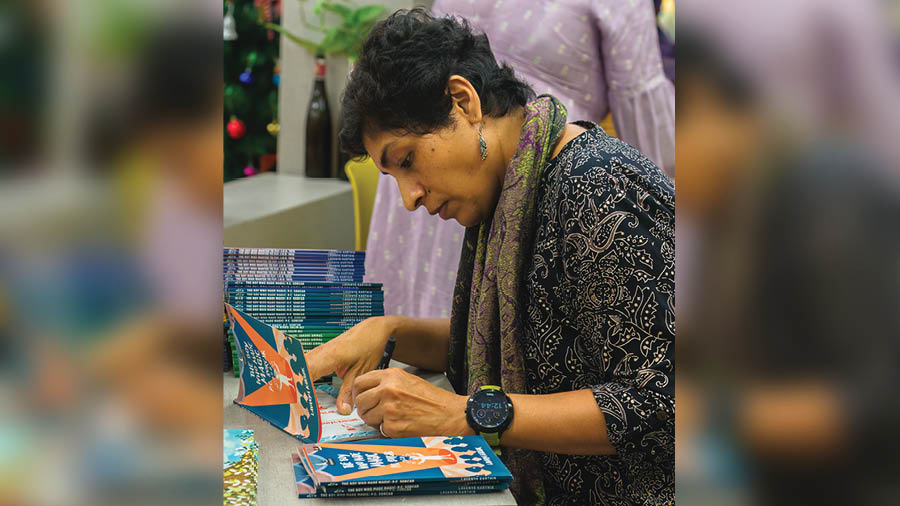

Meets like these are extremely important because, after parents, librarians are the next point of contact for children in terms of building reading skills and the love for reading. We were here to talk about how, as educators, we can bring this love naturally to children without turning reading into a forced activity. We want to pass on the passion for reading to the children so that they can experience the magic of different worlds for themselves. Reading should be about pleasure and not about anything else
Lavanya Karthik, author and illustrator
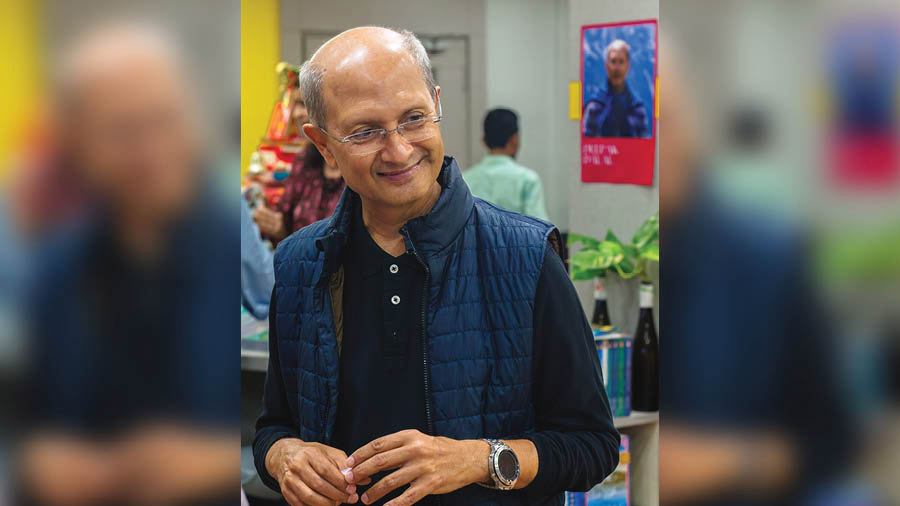

The most important teacher in a school is the librarian because they open doors to different worlds, people, cultures, and all kinds of experiences for the kids. Matching the right book with the right reader is not an easy job. Parents and librarians should make greater efforts to get their children to read more. They need to sit with the kids and make it a habit to read or look at picture books everyday, even if it’s for a short time
Deepak Dalal, author
